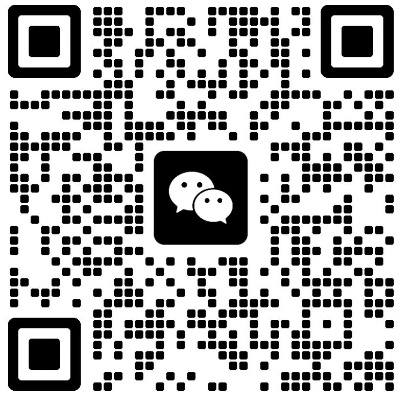期货交易双语:掌握未来市场的艺术
期货交易是一种充满挑战与机遇的金融活动,它不仅仅是一种投资方式,更是一种对未来市场趋势的预测和把握。在这个全球化的时代,掌握双语能力对于期货交易者来说,无疑是一个巨大的优势。本文将探讨双语在期货交易中的重要性,以及如何利用双语技能来提升交易效率和准确性。
为什么双语对期货交易至关重要?
1. 获取多元信息源
在期货交易中,信息就是力量。掌握双语能力,尤其是英语和汉语,可以帮助交易者直接访问和理解来自全球不同市场的第一手信息。英语作为国际金融市场的通用语言,能够帮助交易者获取美国、欧洲等主要市场的情报。而汉语则能够让他们更好地了解中国及亚洲市场,这对于全球最大的商品生产和消费国之一来说至关重要。
2. 精准理解市场动态
市场动态经常在不同语言间有所差异,双语者能够更准确地捕捉这些细微差别。例如,商品价格波动可能在中文和英文的报道中被以不同的方式解读。一个双语交易者能够理解这些差异,从而做出更加明智的交易决策。
3. 增强沟通与合作
在期货交易中,与世界各地的交易员、分析师和市场专家进行有效沟通至关重要。双语能力使得交易者能够跨越语言障碍,与国际同行进行深入交流。这种交流不仅可以建立重要的商业联系,还能获取更多合作机会。
如何利用双语技能提升交易效率?
1. 实时监控多语言新闻与报告
双语交易者可以同时关注中文和英文的新闻网站、市场分析报告和专业期刊。通过实时监控这些信息源,他们能够更快地对市场变动做出反应。
2. 参与多语种的网络研讨会和讲座
网络研讨会和讲座是获取最新市场信息和交易策略的有效途径。双语交易者可以参加不同语言的活动,这不仅扩大了他们的知识面,也增强了对市场趋势的理解。
3. 利用双语优势进行市场研究
在进行市场分析时,双语交易者可以利用双语优势,对比不同语言的市场研究报告。这有助于他们更全面地了解市场情况,从而做出更准确的预测。
结语
期货交易是一项需要不断学习和适应的活动。双语能力不仅为交易者打开了通往全球市场的大门,还提供了更深层次的理解和分析市场的能力。在这个多变的金融世界里,双语交易者能够更好地把握机遇,规避风险,最终在期货交易的道路上走得更远。掌握双语,就是掌握了未来市场的艺术。
引言
期货交易,作为一种高风险高回报的金融活动,吸引了无数投资者的目光。然而,对于初学者来说,期货市场的复杂性和专业性常常让人望而却步。本文将从双语(中文和英文)的角度,深入探讨期货交易的基本概念、策略技巧以及市场心理,帮助读者更好地理解和掌握这一投资工具。
一、期货交易的基本概念
1.1 什么是期货?
中文解释: 期货是一种标准化的合约,买卖双方约定在未来某一特定时间和地点,按照约定的价格买卖一定数量的某种商品或金融工具。
English Explanation: A futures contract is a standardized agreement to purchase or sell a specific quantity of a commodity or financial instrument at a predetermined price on a specific date in the future.
1.2 期货市场的起源
中文解释: 期货市场的起源可以追溯到19世纪的芝加哥。当时,农产品交易商为了规避价格波动风险,开始使用期货合约来锁定未来的买卖价格。
English Explanation: The origins of the futures market can be traced back to 19th-century Chicago. At that time, agricultural commodity traders began using futures contracts to hedge against price volatility.
1.3 期货合约的种类
中文解释: 期货合约主要分为商品期货和金融期货两大类。商品期货包括农产品、金属、能源等;金融期货则包括股指期货、利率期货、外汇期货等。
English Explanation: Futures contracts are mainly divided into two categories: commodity futures and financial futures. Commodity futures include agricultural products, metals, energy, etc.; financial futures include stock index futures, interest rate futures, currency futures, etc.
二、期货交易的基本策略
2.1 套期保值(Hedging)
中文解释: 套期保值是指通过期货市场来锁定现货市场的价格风险。例如,农产品生产商可以通过卖出期货合约来锁定未来的销售价格,从而规避价格下跌的风险。
English Explanation: Hedging involves using the futures market to lock in prices in the spot market, thereby mitigating price risk. For example, agricultural producers can sell futures contracts to lock in future selling prices, thereby avoiding the risk of price declines.
2.2 投机(Speculation)
中文解释: 投机是指投资者通过预测市场价格变动,买入或卖出期货合约,以期从中获利。投机者通常承担较高的风险,但潜在的回报也较高。
English Explanation: Speculation involves investors predicting market price movements and buying or selling futures contracts to profit from these predictions. Speculators typically take on higher risks but also have the potential for higher returns.
2.3 套利(Arbitrage)
中文解释: 套利是指利用不同市场或不同合约之间的价格差异,同时买入低价合约和卖出高价合约,从而赚取无风险利润。
English Explanation: Arbitrage involves exploiting price differences between different markets or contracts by simultaneously buying low-priced contracts and selling high-priced contracts to earn risk-free profits.
三、期货交易的心理因素
3.1 恐惧与贪婪
中文解释: 恐惧和贪婪是期货交易中最常见的心理因素。恐惧可能导致投资者在市场下跌时过早平仓,而贪婪则可能导致投资者在市场上涨时过度追高。
English Explanation: Fear and greed are the most common psychological factors in futures trading. Fear can lead investors to close positions too early during market downturns, while greed can lead to overreaching during market upswings.
3.2 风险管理
中文解释: 有效的风险管理是期货交易成功的关键。投资者应设定合理的止损点和止盈点,避免因情绪波动而做出非理性决策。
English Explanation: Effective risk management is crucial to successful futures trading. Investors should set reasonable stop-loss and take-profit points to avoid making irrational decisions due to emotional fluctuations.
3.3 耐心与纪律
中文解释: 耐心和纪律是期货交易者必备的品质。市场波动频繁,投资者需要有足够的耐心等待合适的交易机会,并严格遵守交易计划。
English Explanation: Patience and discipline are essential qualities for futures traders. With frequent market fluctuations, investors need sufficient patience to wait for suitable trading opportunities and strictly adhere to their trading plans.
四、期货交易的双语案例分析
4.1 案例一:大豆期货套期保值
中文案例: 某大豆种植户预计未来大豆价格可能下跌,于是在期货市场上卖出大豆期货合约,锁定未来销售价格。三个月后,大豆现货价格果然下跌,但该种植户通过期货市场获利,弥补了现货市场的损失。
English Case: A soybean farmer anticipates a potential decline in soybean prices in the future and sells soybean futures contracts to lock in future selling prices. Three months later, the spot price of soybeans indeed falls, but the farmer profits from the futures market, offsetting losses in the spot market.
4.2 案例二:股指期货投机
中文案例: 某投资者预测股市将迎来一波上涨行情,于是买入股指期货合约。一个月后,股市果然上涨,该投资者通过平仓股指期货合约获得丰厚利润。
English Case: An investor predicts an upcoming bullish trend in the stock market and buys stock index futures contracts. One month later, the stock market indeed rises, and the investor earns substantial profits by closing the stock index futures contracts.
4.3 案例三:外汇期货套利
中文案例: 某投资者发现美元兑欧元在外汇市场和期货市场之间存在价格差异,于是在外汇市场买入美元,同时在期货市场卖出美元期货合约。通过这种套利操作,该投资者在短时间内获得了无风险利润。
English Case: An investor notices a price discrepancy between the foreign exchange market and the futures market for USD/EUR. The investor buys USD in the foreign exchange market while simultaneously selling USD futures contracts in the futures market. Through this arbitrage operation, the investor earns risk-free profits in a short period.
五、期货交易的未来趋势
5.1 科技驱动
中文解释: 随着人工智能、大数据等技术的快速发展,期货交易将越来越依赖于科技手段。高频交易、算法交易等新兴交易方式将成为主流。
English Explanation: With the rapid development of technologies such as artificial intelligence and big data, futures trading will increasingly rely on technological means. High-frequency trading, algorithmic trading, and other emerging trading methods will become mainstream.
5.2 全球化趋势
中文解释: 全球化进程的加快将使得期货市场更加互联互通。投资者可以跨市场、跨品种进行多元化投资,分散风险。
English Explanation: The acceleration of globalization will make futures markets more interconnected. Investors can engage in diversified investments across markets and products, thereby spreading risk.
5.3 监管趋严
中文解释: 为了防范金融风险,各国政府对期货市场的监管将越来越严格。合规经营、风险管理将成为期货交易的重要考量因素。
English Explanation: To prevent financial risks, governments around the world will increasingly tighten regulations on futures markets. Compliance and risk management will become important considerations in futures trading.
结语
期货交易作为一种复杂的金融活动,既充满机遇也充满挑战。通过双语视角的学习和实践,投资者可以更全面地理解期货市场的运作机制,掌握有效的交易策略,从而在激烈的市场竞争中立于不败之地。希望本文能为广大期货交易爱好者提供有益的参考和启示。
参考文献:
- 《期货交易实战指南》,张三著,金融出版社,2020年。
- "Futures Trading Strategies," John Doe, Financial Times Press, 2019.
- 《金融市场与机构》,李四编,经济科学出版社,2018年。
- "Global Futures Markets," Jane Smith, Wiley Finance, 2021.
免责声明: 本文内容仅供参考,不构成任何投资建议。期货交易风险较高,投资者应谨慎决策,并自行承担投资风险。
上一篇:期货交易原价:掌握市场的脉动
 微信客服
微信客服